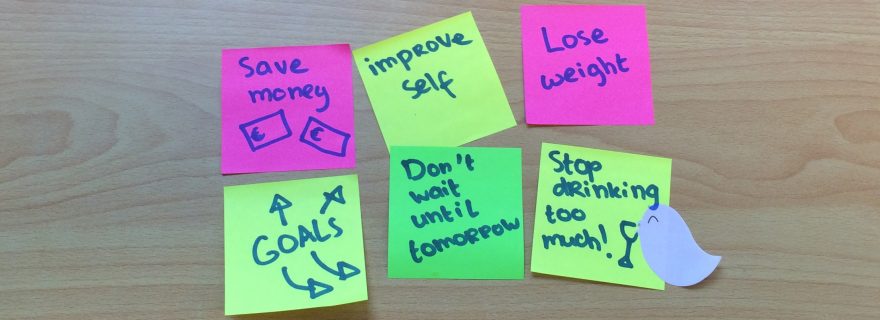Resolutions
When it comes to resolutions, people can be extremely hard on themselves. We firmly resolve ‘I must never gain weight again', or tell ourselves 'I am a bad person to spend that much money'. But is that really the best way to change?
We have the habit of periodically pausing to consider what has gone well or badly over the past year, and what our plans are for the year to come. We do this in all sorts of settings: at our annual performance appraisals at work, on birthdays and anniversaries, or at the start of a new year, when we formulate New Year’s Resolutions. And we’re prone to focus mainly on the things we’re not happy with and think about how we could do better. So the January issues of magazines are full of tips about losing weight and saving money, for instance. And it’s a boom month for gyms and divorce lawyers.
It’s tempting at such moments to be extremely hard on ourselves. We’re annoyed with ourselves for all the habits – such as smoking, drinking, eating too much, or spending too much – that we classify as ‘bad’ or ‘wrong’. We firmly resolve ‘never to do it again’. But is that really such a good idea, if we genuinely want to change?
The results of our research suggest that this is not the handiest way of going about it. We compared the responses to describing goals you want to achieve as obligations that have to be met, and describing them as ideals to strive for. It turned out to make a big difference. ‘Compulsory’ goals trigger physical stress and emotional tension. We must do it, whatever happens, no matter how difficult the circumstances. And if we even fail once, the whole endeavour is write-off. If, on the other hand, we express goals as ideals we would like to attain, it actually generates positive energy. In this case we’re more focused on what we can achieve, on where the prospects of success lie. Each step in the right direction is a minor victory, and this makes us happy. If we think of goals as ideals, we reflect on them more and are more capable of thinking of different ways to attain our chosen goal.
The judgements we reach about ourselves also play a role. Do you judge yourself a ‘bad person’ if you just can’t resist that luscious piece of cake, or indulge in a couple of glasses too many? Or is it just ‘maybe not ideal’, or ‘a bit silly’? Here too we have a tendency to view our behaviour in the worst possible light, so as to drive home the need for change. Our research shows that this too is not the best way to go about it. If people consider what their undesirable behaviour reveals about their morality (showing them to be a ‘good’ or a ‘bad’ person), this generates so much stress and negative emotions that they despair of matters ever working out. If we prompt them to describe the same slip-ups in terms of their abilities (whether they are ‘clever’ or ‘stupid’), then they usually believe next time around they’ll probably do better.
So what’s my own resolution? To give you a few things to think about, on the basis of the results of our research programme.


